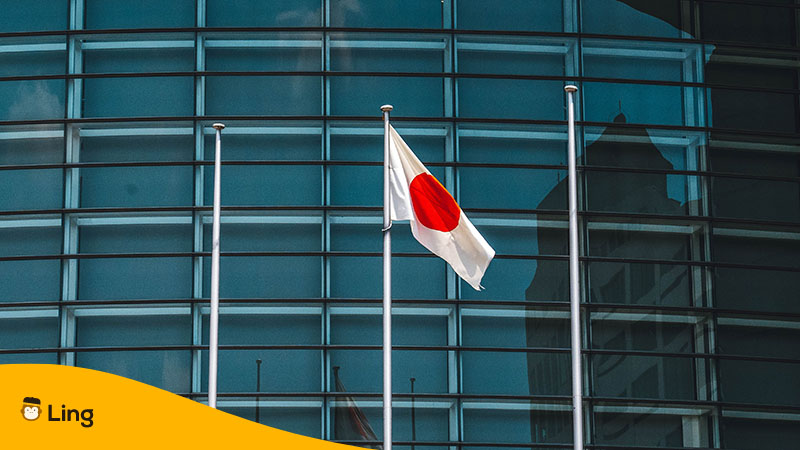Are you learning Korean? If so, you probably have noticed a significant number of oeraeeo or loanwords in Korean. You might think this is good because you already know what they mean. In fact, you may find many phrases that sound like English, but their meaning is not what you think.
Today we’ll explore loanwords in Korean, where they come from, how to use them, and their differences. So, if you want to expand your Korean vocabulary, this is the place for you!
What Is A Loanword?
A loanword is a term taken from one language and adopted by another. Usually, the loanwords are assumed identically, including the original sound and language’s meaning. In other cases, it happens partially. This means taking parts of the “borrowed” word and adapting it to fit the culture and language of the place where it’s assimilated.
Language loans are not exclusive to Korean. The rise of Western culture has influenced languages as well. For example, Japanese, Chinese, and Spanish have adopted English expressions as part of their vocabulary. Language loans are almost inevitable in the age of globalization; this topic alone would require an article on itself. But today, we’ll focus on Korean.
Let’s see where the Korean loanwords come from and what distinguishes them.

Pure Korean And Sino-Korean Words
The name says it all: pure Korean or native words originate entirely in Korea; foreign languages do not influence them.
- 해 → sun
- 쓰다→ write
- 고르다 → Choose
On the other hand, Sino-Korean words come from the Chinese language and are still used today. Sino-Korean terms might be found in formal settings, while Pure Korean words are used in everyday life. However, one is not a substitute for the other, and it is imperative to know both to use the language properly.
Example Of Sino-Korean Words
| English | Korean | Transcription | Chinese | Sound (Korean) |
| Greeting | 인사 | Insa | 人事 (rénshì) | |
| Worry, agonize | 고민 | Gomin | 苦闷 (kǔmèn) | |
| Apology | 사과 | Sagwa | 赦過 (shè guò) | |
| By chance, incidentally | 혹시 | Hogsi | 或是 (huòshì) |

Japanese Loanwords In The Korean Language
During the Japanese occupation, there was a large insertion of loanwords into Korea. Back then, teaching and speaking Korean was forbidden. But there is the very curious. Most of the “Japanese loanwords” in Korean come from Wasei-eigo.
Wasei-eigo refers to Japanese-language expressions that are based on English. They are so unique that some of these don’t exist in standard English or whose meanings might significantly differ from the words from which they were derived. Linguists actually are actually classifying these words as pseudo-loanwords or pseudo-anglicisms. This means that these words in another language formed from English elements may appear and even sounds like English, but that does not exist as an English word with the same meaning.
Let’s look at some examples.
| English | Korean | Transcription | Japanese | Sound (Korean) |
| Air + conditioner | 에어컨 | Eeokeon | エアコン | |
| Consent – “power sockets, outlets” | 콘센트 | Konsenteu | コンセント | |
| Remote + control | 리모컨 | Rimokeon | リモコン |
The previous examples show that Japanese loanwords in the Korean language are English loanwords or pseudo-anglicisms. So we have to dig deeper in order to find the actual Japanese loan words in Korean.
What Is Konglish?
Konglish (콩글리시, kong-geullisi) is a combination of Korean and English. Due to the presence of U.S. troops after the Korean War, American culture’s influence was very significant, which is reflected in the language.
Korean people started to adopt English words and phrases, but this process was not always accurate. As a result, we find many English words partially combined with Korean words, while others might be the product of mistranslations. In addition, we have multiple Konglish words that sound like English but are pseudo-anglicisms.

The Difference Between Konglish And Loan Words In Korean
A major difference between Korean loan words and Konglish is that loan words are taken directly from English or another language, keeping the original meaning. Konglish changed the actual words or definitions. Throughout the years, we have seen examples of Korean words combined with English resulting in new terms unique to the Korean language. Let’s see some of them below!
Korean Loanwords
Konglish
Now that you know where Korean loanwords come from and how they differ, let’s look at some of the most common loanwords in the Korean language. Identify the ones you already know and take note of those that are new to you.
How To Use Loanwords In Korean?
Just like other Korean words, to use Loanwords, you need to understand their meaning and the context in which they are used. You don’t have to worry about methods or rules, you need to expose yourself to the language, and you will be able to learn how to use them naturally. And speaking of learning, we’ve got the best app for you to try out! Check it out below!
Are You Ready To Use The Korean Loan Words?
Korean has become one of the most popular languages in recent years. K-pop, K-dramas, and Korean culture have spread incredibly quickly. Learning loan words will be very useful if you want to sound like a native speaker and communicate with Koreans fluently.
Now, you have plenty of resources available at your fingertips. The Ling app gives you all the tools you need to take your Korean learning experience to the next level. Download it for free from the App Store or Play Store. 다음에 만나요!



































































